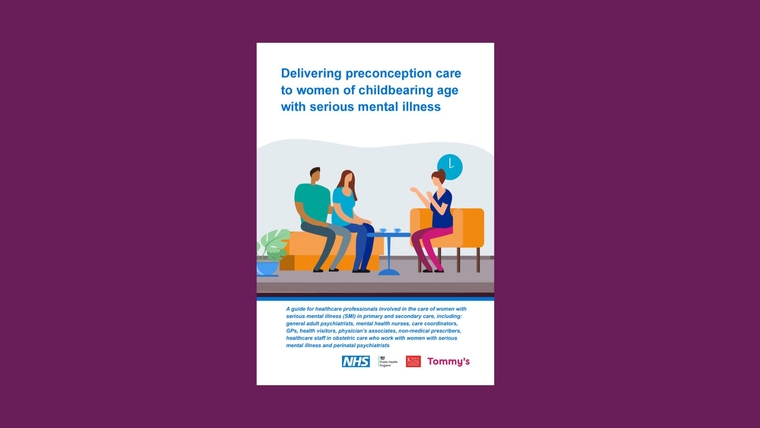Posted By: Amy Tubb
8th February 2021
2 minute read

Guest blog by Katie Atmore and Professor Louise Howard, King’s College London
MMHA member Tommy’s has collaborated with Public Health England and King’s College London to develop preconception resources for women with serious mental illness (SMI) and the frontline health professionals who support them.
Women with serious mental illness may have specific social, physical, and mental health needs which could impact their pregnancies. They may also encounter conflicting or stigmatising information around their desire for motherhood. The tool and resources help them to think through the issues and signposts them to other sources of help in planning a healthy pregnancy.
Health professionals working with women with SMI should embed conversations in routine care to promote awareness of physical and mental health issues which can contribute to healthy pregnancies and allow women to feel supported and empowered to make reproductive choices. These conversations should be started early, ideally at all routine reviews, whether or not women are planning a pregnancy, so that women can develop an awareness of what steps they can take now, before they stop contraception, to contribute to having a healthy pregnancy and baby.
“Having become ill and ending up in hospital after the birth of my first child I am very aware of how important it is to get good information and advice and prepare yourself as well as you can before having a baby. I did that before my second child and stayed well which was wonderful. This Tommy’s tool is fantastic because it brings all the information you need together in one place”.
– Mum with Bipolar Disorder
“This is a fantastic resource. It will help healthcare professionals feel more confident in proactively discussing the possibility of future pregnancy with women of childbearing age who have had a serious mental illness. It will potentially reduce the chance of unplanned pregnancies, empower women who want to have a family, increase the number of women accessing specialist preconception advice and improve women’s physical and mental health before and during pregnancy.”
– Consultant Perinatal Psychiatrist